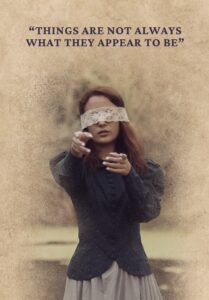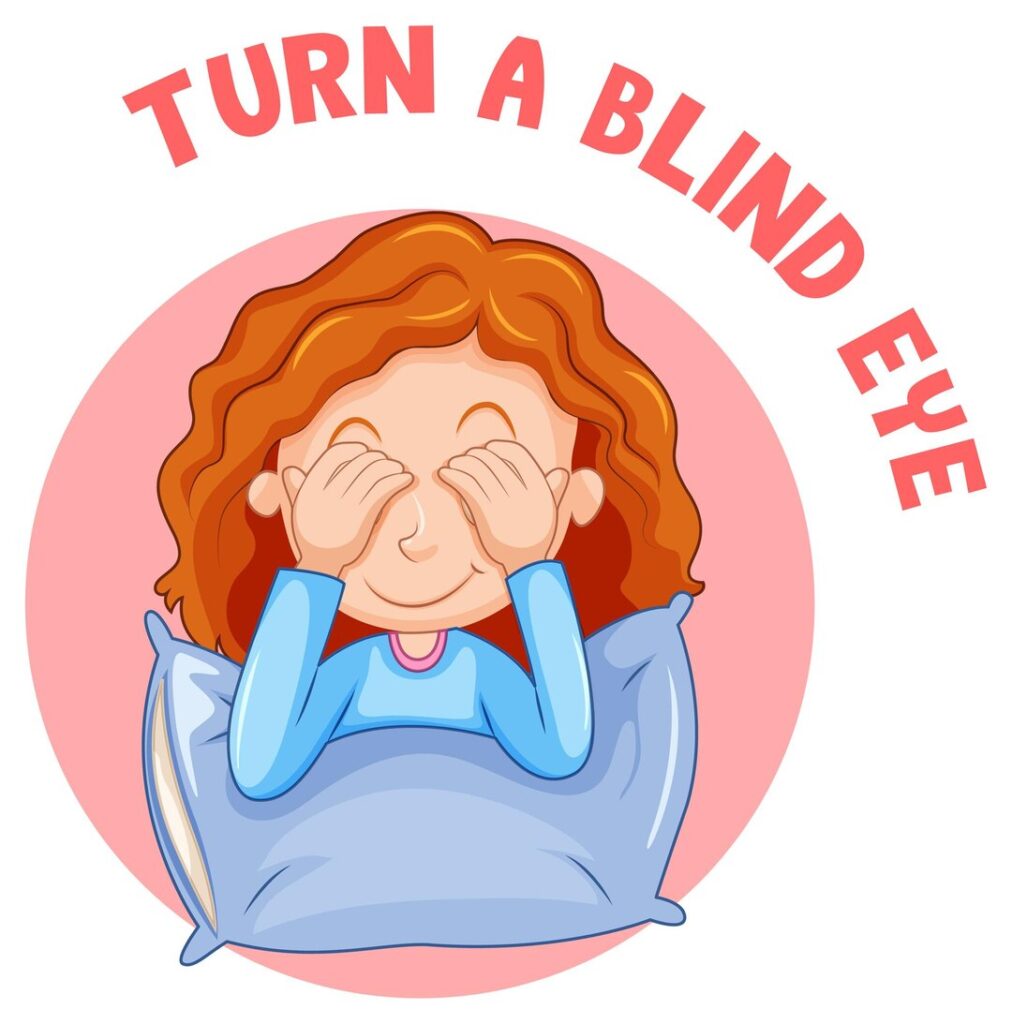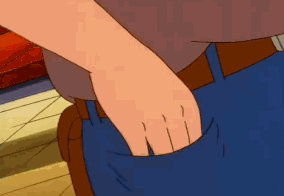Sometimes, Hindi idioms don’t mean what they literally say. Their meaning becomes apparent only in context.
Aankhon par patti baandhna

Sometimes, idioms don’t mean what they literally say. Their meaning becomes apparent only in context.
One such idiom is “aankhon par patti baandhna”. I’ve had the wrong idea about this idiom for years. I guess I never took Hindi seriously during my school days. It’s a shame how Hindi is often looked down upon as a subject by most of us. When it comes to Hindi idioms, we often get their meaning without digging as deep as we do with English ones.
While this idiom literally translates to “tying a blindfold over someone’s eyes”—as if one person is trying to fool another—it actually has a different meaning altogether.
It means to ignore something deliberately out of fear, to avoid conflict, or due to personal bias. The English idiom that perfectly captures its meaning is “to turn a blind eye/ to close or shut one’s eyes to something”

Understanding in context
There is this co-worker who always has one or the other reason to slip out of the office early. It’s pretty obvious to everyone what’s going on. The boss, however, pretends not to notice, turning a blind eye to the obvious. That’s “Aankhon pe patti baandhna” in the workplace.
Common daily sentences:
1. वह अपने बेटे की गलतियों को देख कर भी हमेशा आँखों पट्टी बाँध लेती है।तभी तो वह बिगड़ गया है।
Wo apne bete ki galtiyon ko dekh kar bhi hamesha aankhon par patti baandh feti hai.
She always turns a blind eye to her son’s faults; no wonder he is so spoilt.
2. राजीव चाहे सुबह लेट आये और शाम को जल्दी जाये, उसकी बातों पर तो बॉस ने आँखों पर पट्टी बांध रखी हैं।
Rajiv chaahe subha late aaye aur shaam ko jaldi jaaye, uski baaton par to boss ne aankhon par patti baandh rakhi hai.
No matter how late Rajiv shows up in the morning or how early he leaves in the evening, the boss just turns a blind eye.
4. खुशहाल ज़िंदगी के लिए कई बार आँखों पर पट्टी बांधना बहुत ज़रूरी होता है।
Khushhaal zindagi ke liye kai baar aankhon par patti bandhna bahut zaruri hota hai.
Sometimes, you have to turn a blind eye to ensure a happy life.
For a blissful life, there are times when turning a blind eye is necessary.
Aankhon mein dhool jhonkna

Now, the next idiom, “Aankhon mein dhool jhonkna”, had literally been throwing dust in my eyes all these years. I believed it was the same as “aankhon par patti bandhna.” Interestingly, the English version of this idiom is “to pull the wool over someone’s eyes” which closely matches “aankhon par patti baandhna.” But I couldn’t have been more wrong.
While “Aankhon pe patti baandhna” is all about turning a blind eye, “Aankhon mein dhool jhonkna” is about cunningly deceiving someone.
Understanding in context
A maid cleans just the obvious spots in the house and stashes the dirt in hidden places. The employer, seeing a spotless home, believes she’s done a great job . Or a kid pretends to be sick to skip school, putting on a convincing act in front of his parents just to get a day off. This is “aankhon mein dhool jhonkna” in both cases.
Common daily sentences:
1. वो अपने माता-पिता की आँखों में धूल झोंक रहे हैं। दोस्त के घर पढ़ने का बहाना बनाकर असलियत में पॉर्टी कर रहे हैं।
They’re pulling the wool over their parents’ eyes by pretending to study at a friend’s place when they’re actually out partying. ( Idiomatic)
They’re fooling their parents by pretending to study at a friend’s place when they’re actually out partying. (Conversational)
2. तुम उसकी बातों में मत आना।वो तुम्हारी आँखों में धूल झोंक रहा है।
Don’t fall for his words. He is pulling the wool over your eyes. (Idiomatic)
Don’t fall for his words. He is deceiving you. (Conversational)
3. वो बहुत देर बाद समझी कि उसका पति इतने सालों से उसकी आँखों में धूल झोंक रहा था।
It was too late when she realised that her husband had been pulling the wool over her eyes all these years. (Idiomatic)
It was too late when she realised that her husband had been cheating on her all these years.(Conversational)
Summary
To sum it up, in “Aankhon pe patti baandhna,” you’re the one putting the blindfold on yourself to avoid unpleasant truths ; while in “Aankhon mein dhool jhonkna,” you’re throwing dust into someone else’s eyes to trick them into seeing things your way.
These Hindi idioms remind us that sometimes words might actually pull the wool over your eyes, masking reality. They can shield or distort the truth. So, to uncover the real picture, we need to look beyond the surface.
Harleen Kaur

This is such a fun and engaging blog which is educative without being preachy!!
Your words gave lot to teach and all U have to do to learn is absorb it all just like you did with your teachers all those years ago…
Your words mean a lot!!!
This was hilarious….. love how there are detailed examples for everything ….. will definitely be coming back to read more .
Thank you, Sahiba